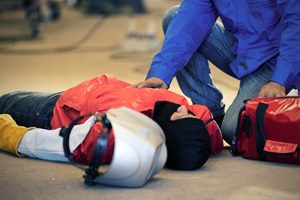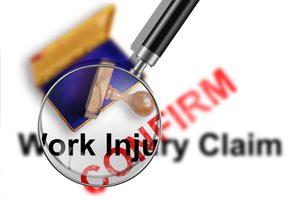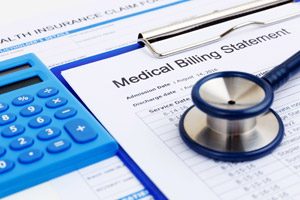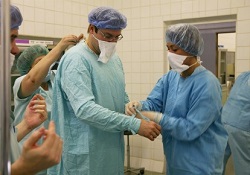What Benefits Are Your Survivors Able to Recover?
 In New Jersey, after a job-related injury, you can apply for disability and medical benefits under the state’s workers’ compensation system. If your injury keeps you from working, either temporarily or permanently, you’ll be able to pursue disability benefits, either for the time you are out of work, for a set period of time (if your injury is permanent), or even for the rest of your life, in certain situations. But what happens if you are killed in a workplace accident or die from an occupational disease?
In New Jersey, after a job-related injury, you can apply for disability and medical benefits under the state’s workers’ compensation system. If your injury keeps you from working, either temporarily or permanently, you’ll be able to pursue disability benefits, either for the time you are out of work, for a set period of time (if your injury is permanent), or even for the rest of your life, in certain situations. But what happens if you are killed in a workplace accident or die from an occupational disease?
Under New Jersey law, the surviving spouse and natural children who were in a worker’s household at the time of death qualify as dependents and are entitled to receive a death benefit after a worker is killed or dies because of a work-related cause. As a general rule, the benefits will be 70% of the worker’s average weekly wage (AWW) for the past 52 weeks. That benefit amount is divided among the dependents. Other relatives or dependents may also seek death benefits, but must prove actual dependency to the workers’ compensation board. A minor child will be considered a dependent until age 18, unless in college or physically/mentally disabled, when benefits may be available for a longer period of time.
In addition, the workers’ compensation insurance company or the employer must pay up to $3,500 in burial or funeral expenses when a worker dies from a job-related cause.
Contact Us
At Taylor & Boguski, we bring more than 70 years of combined legal experience to injured workers throughout New Jersey. For a free initial consultation, contact our office online or call us at 856-200-8989.
We handle all workers’ compensation claims on a contingency basis. We won’t charge you attorney fees if we don’t recover compensation for your losses.


 When you’ve suffered an injury on the job, you have a right to seek workers’ compensation benefits for any temporary or long term disability that keeps you from working or for any partial, but permanent, injury. Your employer and the workers’ compensation insurance company, though, have an incentive to minimize the amount paid to you, or to deny your claim altogether, as your claim cuts into their profits. So they’ll often use any means at their disposal to try to invalidate your claim, including hiring private investigators to secretly videotape you.
When you’ve suffered an injury on the job, you have a right to seek workers’ compensation benefits for any temporary or long term disability that keeps you from working or for any partial, but permanent, injury. Your employer and the workers’ compensation insurance company, though, have an incentive to minimize the amount paid to you, or to deny your claim altogether, as your claim cuts into their profits. So they’ll often use any means at their disposal to try to invalidate your claim, including hiring private investigators to secretly videotape you.  In New Jersey, when you’ve been
In New Jersey, when you’ve been 
 When you are giving birth to a child, there’s always the possibility that, once the baby’s head is out of the birth canal, one of its shoulders will get caught on your pubic bone, a condition known as “Shoulder Dystocia.” If your delivering physician fails to take appropriate steps, your child can suffer very serious consequences, including damage to the brachial plexus nerves that control the shoulder, arms, hands and fingers. This can lead to loss of use or paralysis. In rare situations, shoulder Dystocia may impede the flow of blood and oxygen, causing brain damage, cerebral palsy or even death.
When you are giving birth to a child, there’s always the possibility that, once the baby’s head is out of the birth canal, one of its shoulders will get caught on your pubic bone, a condition known as “Shoulder Dystocia.” If your delivering physician fails to take appropriate steps, your child can suffer very serious consequences, including damage to the brachial plexus nerves that control the shoulder, arms, hands and fingers. This can lead to loss of use or paralysis. In rare situations, shoulder Dystocia may impede the flow of blood and oxygen, causing brain damage, cerebral palsy or even death.